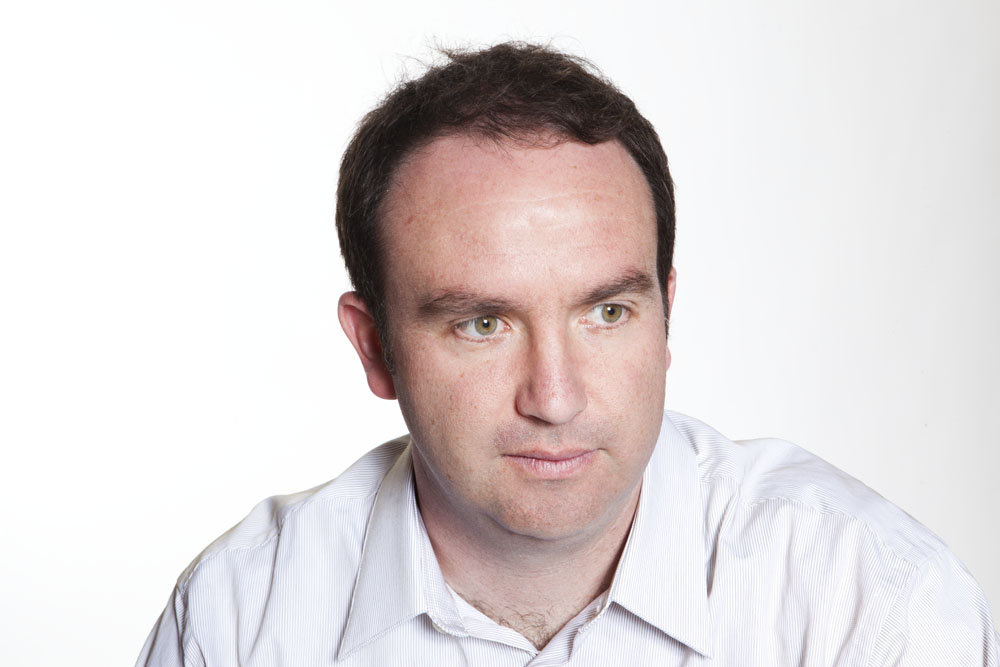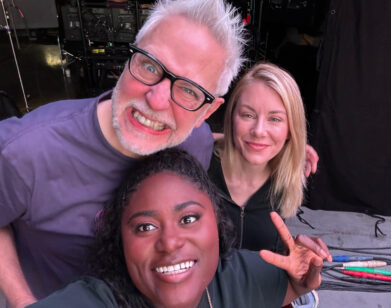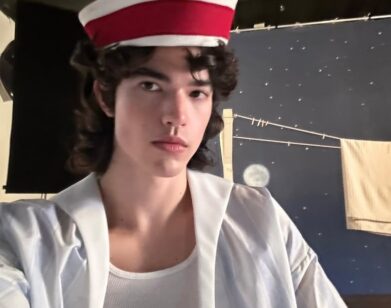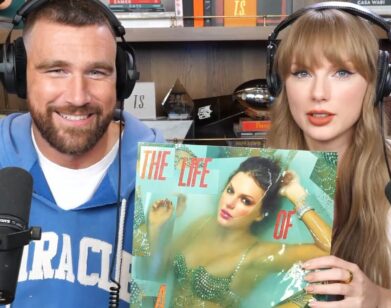Jim Gavin Regrets Nothing
In this era of economic stagnation, talk of dispiriting odd jobs and flat-out unemployment is becoming drudgingly commonplace. Often yearned for, though less discussed, is the moment when something springs a person’s life onto the right path.
For author Jim Gavin, all it took was a writing class at UCLA to snap the then-20something out of a rut. His knack for storytelling led to a Wallace Stegner Fellowship in Fiction from Stanford University, and later, a byline in The New Yorker‘s fiction section, awarded after an unsolicited submission. While his is a success story, Gavin, too, paid his dues at his own unique slew of odd jobs, including plumbing equipment salesman and Jeopardy! production assistant.
But Gavin, now 36, values his experiences: no dumb decision, overscrutinized insecurity (about, for example, his “weird concave chest”), or melancholic slump is glossed over in his memory. Breakups and other psychological beatings, devastating at the time, now serve as material for his narratives. As he explains, they are far away enough now so that he can laugh at himself, and by crafting characters around alter egos from his past, he invites his readers to laugh along with him.
Gavin’s first book, the short story collection Middle Men (Simon & Schuster), delves into these experiences. The first story, “Play the Man,” focuses on a teenager; subsequent narratives follow male protagonists at advancing life stages, from adolescence to later middle age. “Costello,” the piece published by The New Yorker, about an older man not doing, or worrying about, much at all, caps the collection. Like the real-life Gavin, they wander through a sleepier sphere of Los Angeles than the celestial Hollywood outsiders romanticize.
An admitted Southern California devotee, Gavin spoke with us from his Los Angeles home on obtaining the writing career of his dreams. As it was a bi-coastal phone conversation, we briefly discussed the weather.
RACHEL SMALL: So, were you born in Los Angeles?
JIM GAVIN: I was born in Long Beach, and I grew up in Orange County, and I’ve lived near there for most of my life. I’ve also had two stints in North California, and I’ve only lived outside of California once, when I lived in Boston for a year. It was my first winter. It was also probably my last.
SMALL: The snow wasn’t well received?
GAVIN: No. I’m a total lightweight. It’s a pathetic spectacle—me being in the snow, so…
SMALL: Well I lived in California for six years, and let me say, here, I’m still guaranteed to slip and fall on the sidewalk at least twice per winter.
GAVIN: [chuckles]
SMALL: While you were living in and around Los Angeles, you had several odd jobs before signing up for the UCLA writing class. How did you finally decide to take that leap?
GAVIN: I had a few different careers, and they just didn’t pan out. I think I always had some notion of wanting to write. In college, I wasn’t a very precocious student—I was kind of a late bloomer. My dream job would have been writing for The Simpsons, but I assumed because I didn’t go to an Ivy League school I wasn’t allowed to do that. I think in my early 20s, I started trying to write. I was working as a sportswriter for a little while, and I had a few other jobs. Also, I worked for a couple years in the plumbing industry. That was a sales job, so I was on the road for six or seven hours a day. I was making okay money, but I was isolated. At one point I was working on the game show Jeopardy!. So, I signed up for an adult education class at UCLA Extension. I took a class with a guy named Lou Mathews who is a great writer, and he’s very encouraging. I don’t think, until I was about 30, I started to take writing really seriously or even think of it as something I could really do.
SMALL: How would you describe your writing style?
GAVIN: I’ve always been curious. I’m always chasing after something. I nerd out on things. But I’ve never had a hierarchy of literary cultures here or pop cultures there. I feel like The Simpsons mean as much to me as Ulysses. I think Joyce is a writer who finds joy and beauty in all the little bits of culture. I think in your 20s, when you’re trying to write, you’re probably trying to appear smart, and well read. I’ve kind of let go of all of these things. I just want to be honest—that’s the only real measure of a writer, for me, and I can only get to that type of honesty through a certain sense of humor. So, I have no problem being called a comic writer—I’d prefer that over a “literary stylist.”
SMALL: Los Angeles plays a big part of your stories, but it’s not the glamorous Hollywood side, nor the seedy underbelly, but rather a different dimension that seems isolating. Not in a bad sense, necessarily—just, you have a lot of time to yourself. How has that influenced your worldview, and with that, your stories?
GAVIN: My dad is a fourth-generation Long Beach guy, and this happy-go-lucky, laid-back dude. He was drafted in Vietnam, and he’s had quite a life. He’s worked in plumbing forever. There’s something about his ease in this place. He knows every single road and freeway in Southern California. In the evening, if you can find a way to drift towards the coast a little bit, you can catch the sunset. There’s a mood here, and a certain kind of light that I miss when I’m not here. In outlying areas of LA, where I grew up, you meet people that are very proud to be from there. They don’t care what’s going on in Hollywood. That’s the place where I feel most at home, and it’s a part that is rarely depicted, I suppose. Those middle places are the places I know really well, and try and capture, in some ways. The whole freeway thing is really interesting. When I had my sales job, I was in the car so much… I feel like I wrote a million novels in my head.
SMALL: Besides the somewhat unpleasant aspect of the four extreme seasons in Boston, do you notice much else that is, different, in a good way, or in a bad way, on the East Coast?
GAVIN: My mom is a transplant. She was born in Boston, and that whole side of the family is dirty Boston Irish. She hated California. I was actually excited to visit Boston, but it didn’t take. The people, I thought, are very territorial. And I look like every third white male in Boston, like bloated Irish. I walk into a bar and people do double take at me, thinking “Oh, that’s not Sully or Murphy, or whatever.” So I found it was a hard place to meet people. I missed the Mexican food in California. It’s beautiful, and I miss walking around Boston. But the kind of laid-back-ness that I’m used to out here is… just not there. I’m always waiting to come back here. It’s the one thing in my life I’ve figured out; this is where I want to live.
SMALL: In your stories, you’ve taken a bit from your own life, and you’ve said how you are ready to take an honest look at your past. How are you able to put a humorous spin on painful topics?
GAVIN: It’s kind of what comes naturally to me. Both my parents are really funny, and good storytellers, so that’s built in. But if you are writing, you want a memorable story, too. In the collection, “Bermuda,” a story of young love, is totally autobiographical. I made a disastrous trip to Bermuda [to visit an estranged lover]. I was a young man, and the woman was older. It took me 10 years, and a lot of distance, to actually see it for what it really was, to get past it, and see the comic element of how clueless I was, or anyone at that age is. You think the world owes you something, and it just doesn’t work that way. So, something like that just takes time to reflect on. It might start with a spark, but I try and move into what might be painful about the situation. It’s generally how the stories operate. I think the first few stories were more overtly comic, and then the book gets a little darker as the protagonists get older. Their future is gone, in a sense, and they have to revise their sense of who they are.
SMALL: Do you picture each protagonist as more or less the same person, but in different contexts, or do you envision them each as their own character?
GAVIN: I think the stories all communicate. Each one takes on their own, but they communicate. I didn’t make this anywhere explicit in the text, but the collection started making sense to me when I realized I started seeing it in terms of the apprentice, journeyman, and master. That’s, kind of, the movement of the first two stories are, kind of, apprentice stories, the next three are journeyman stories, and the last story, “Costello,” is about a master. And it’s just someone who has totally come to terms with life. They’ve lived past his dream and he is just a man, he’s a complete person. So, they all come out of a similar context, and there are definitely similarities, but I think each story is told in a different way, and there’s a slightly different person involved.
SMALL: What’s the next step after Middle Men?
GAVIN: Well, I’m working on a novel, which is always a noble, noble thing to say. I do have a lot of work ahead of me, and I’m trying to remain focused. It’s weird—I don’t feel like I’m a better or more confident writer because I’m publishing something. I think, for most writers as well, it’s like reinventing the wheel every time. I have no idea what I’m doing writing a novel, and in some ways, it’s the only way to do it.
SMALL: Would you ever want to take another shot at screenwriting or writing for a TV show?
GAVIN: I’m totally willing to whore myself in Hollywood. No takers yet. But I love that stuff about being in LA, Hollywood’s fun, you know? [laughs] I have no problem saying that. It’s, it’s goofy and terrible and, and monstrous but, with some perspective, it can be a fun place to be.
MIDDLE MEN IS OUT NOW.







